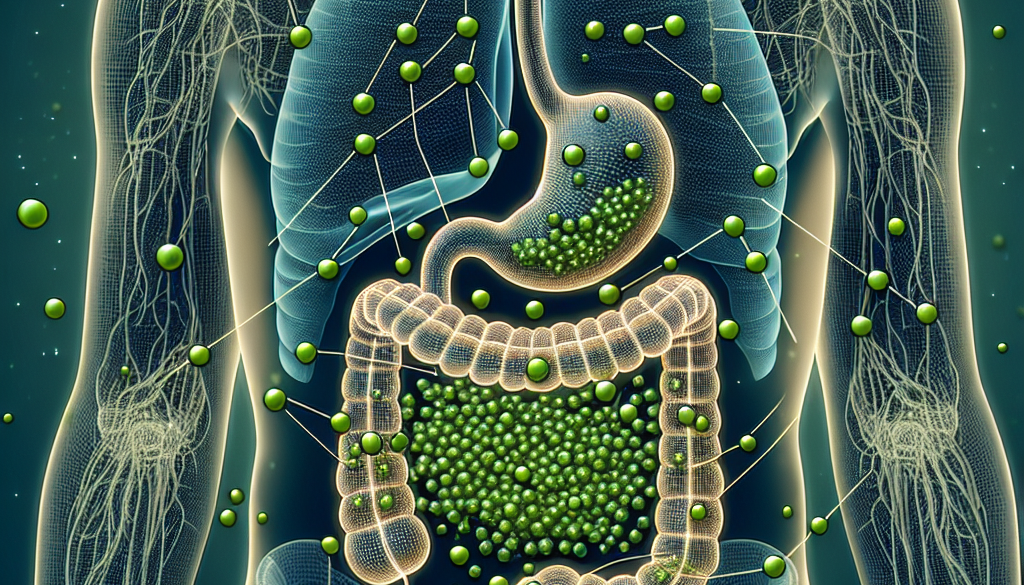Is Pea Protein Hard On The Gut?
-
Table of Contents
- Pea Protein and Gut Health: An In-Depth Analysis
- Understanding Pea Protein
- Pea Protein Digestibility
- Is Pea Protein Hard on the Gut?
- Anti-Nutritional Factors in Pea Protein
- Fiber Content and Digestive Comfort
- Individual Sensitivities and Allergies
- Comparative Studies and Research
- Case Studies on Pea Protein and Digestion
- Optimizing Gut Health with Pea Protein
- Conclusion: Balancing Protein Intake and Gut Health
- Discover ETprotein’s High-Quality Protein Products
Pea Protein and Gut Health: An In-Depth Analysis

Pea protein has gained popularity as a plant-based alternative to animal-derived proteins. Its rise in the health and wellness industry is attributed to its high protein content, hypoallergenic nature, and sustainability. However, as with any dietary change, it’s essential to consider its effects on gut health. This article delves into whether pea protein is hard on the gut, examining scientific evidence and providing insights into its digestibility and potential impact on the gastrointestinal system.
Understanding Pea Protein
Pea protein is derived from yellow split peas and is a rich source of essential amino acids. It is commonly used in protein powders, meat substitutes, and dairy-free products. Unlike some other plant proteins, pea protein contains all nine essential amino acids, making it a complete protein source.
Pea Protein Digestibility
One of the primary concerns with protein sources is their digestibility. Digestibility refers to the body’s ability to break down and absorb nutrients. Pea protein has a relatively high digestibility score, comparable to that of animal proteins, which suggests that it can be efficiently utilized by the body.
Is Pea Protein Hard on the Gut?
The question of whether pea protein is hard on the gut is multifaceted. Several factors, including individual digestive health, the amount of protein consumed, and the presence of anti-nutritional factors, can influence how pea protein affects the gut.
Anti-Nutritional Factors in Pea Protein
Like many legumes, peas contain anti-nutritional factors such as lectins and phytic acid, which can interfere with nutrient absorption and digestion. However, the process of isolating pea protein typically reduces these compounds, minimizing their impact on gut health.
Fiber Content and Digestive Comfort
Pea protein is naturally low in fiber, which can be both a positive and negative aspect. While high-fiber diets are beneficial for gut health, some individuals may experience discomfort from excessive fiber intake. The low fiber content of pea protein makes it less likely to cause issues such as bloating and gas for most people.
Individual Sensitivities and Allergies
Pea protein is generally considered hypoallergenic, but some individuals may have sensitivities or allergies to peas. In such cases, pea protein could cause digestive discomfort or allergic reactions.
Comparative Studies and Research
Research comparing pea protein to other protein sources in terms of gut health is limited but growing. Some studies suggest that pea protein may promote a healthy gut microbiome due to its balanced amino acid profile and the absence of dairy, which can be problematic for lactose-intolerant individuals.
Case Studies on Pea Protein and Digestion
Case studies on pea protein have shown mixed results. Some individuals report improved digestion and gut health after incorporating pea protein into their diets, while others experience discomfort. These anecdotal reports highlight the importance of personal dietary tolerance.
Optimizing Gut Health with Pea Protein
To minimize potential digestive issues with pea protein, consider the following tips:
- Start with small servings and gradually increase intake to allow your gut to adjust.
- Choose high-quality pea protein products that have undergone thorough processing to reduce anti-nutritional factors.
- Stay hydrated, as adequate fluid intake can help manage any increased fiber from accompanying ingredients in pea protein products.
- Listen to your body and consult with a healthcare professional if you experience persistent digestive issues.
Conclusion: Balancing Protein Intake and Gut Health
In conclusion, pea protein is not inherently hard on the gut for most individuals. Its high digestibility and hypoallergenic nature make it a suitable protein source for many. However, as with any dietary change, it’s essential to pay attention to your body’s responses and make adjustments as needed. By choosing high-quality pea protein products and considering individual dietary needs, pea protein can be a valuable addition to a balanced diet.
Discover ETprotein’s High-Quality Protein Products
If you’re looking to incorporate pea protein into your diet, consider ETprotein’s range of protein products. Their offerings are characterized by a neutral taste, non-GMO, allergen-free attributes, and high purity levels, making them an excellent choice for those concerned about gut health.
About ETprotein:
ETprotein, a reputable protein and L-(+)-Ergothioneine (EGT) Chinese factory manufacturer and supplier, is renowned for producing, stocking, exporting, and delivering the highest quality organic bulk vegan proteins and L-(+)-Ergothioneine. They include Organic rice protein, clear rice protein, pea protein, clear pea protein, watermelon seed protein, pumpkin seed protein, sunflower seed protein, mung bean protein, peanut protein, and L-(+)-Ergothioneine EGT Pharmaceutical grade, L-(+)-Ergothioneine EGT food grade, L-(+)-Ergothioneine EGT cosmetic grade, L-(+)-Ergothioneine EGT reference grade and L-(+)-Ergothioneine EGT standard. Their offerings, characterized by a neutral taste, non-GMO, allergen-free attributes, with L-(+)-Ergothioneine purity over 98%, 99%, cater to a diverse range of industries. They serve nutraceutical, pharmaceutical, cosmeceutical, veterinary, as well as food and beverage finished product distributors, traders, and manufacturers across Europe, USA, Canada, Australia, Thailand, Japan, Korea, Brazil, and Chile, among others.
ETprotein specialization includes exporting and delivering tailor-made protein powder and finished nutritional supplements. Their extensive product range covers sectors like Food and Beverage, Sports Nutrition, Weight Management, Dietary Supplements, Health and Wellness Products, and Infant Formula, ensuring comprehensive solutions to meet all your protein needs.
As a trusted company by leading global food and beverage brands and Fortune 500 companies, ETprotein reinforces China’s reputation in the global arena. For more information or to sample their products, please contact them and email sales(at)ETprotein.com today.












